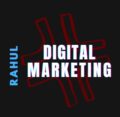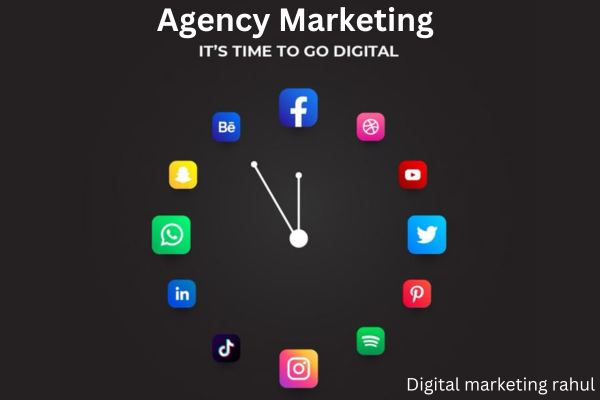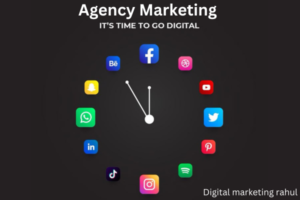Agency Marketing
Introduction
Brief overview of agency marketing
In today’s competitive landscape, marketing agencies must not only deliver outstanding results for their clients but also market themselves effectively. Agency marketing refers to the strategies and tactics used by marketing agencies to attract clients, build a strong brand presence, and scale their business.
- Importance of effective marketing for agencies
Many agencies focus heavily on their clients’ success but often neglect their own marketing efforts. However, without a strong marketing strategy, even the most talented agencies can struggle to generate leads, differentiate themselves from competitors, and sustain long-term growth. Effective marketing helps agencies:
- Establish credibility and authority in their niche
- Attract high-quality clients and reduce dependency on referrals
- Improve client retention and increase profitability
- Scale operations and expand into new markets
- Who this guide is for
This guide is designed for:
Marketing agency owners looking to refine their marketing approach
Freelancers and consultants who want to build a strong personal brand
Agency marketers responsible for driving growth and lead generation
Startups and small agencies aiming to establish a strong foothold in the industry
Whether you’re running a well-established agency or just starting, this guide will provide actionable insights to help you stand out, attract the right clients, and grow your agency successfully.
Now, let’s dive into the fundamentals of agency marketing and explore the best strategies to position your agency for success.
1. Understanding Agency Marketing
In today’s competitive business landscape, agencies must establish a strong presence to attract clients and drive growth. Agency Marketing refers to the strategies and techniques used by marketing agencies to promote their services, build credibility, and generate consistent leads. Unlike traditional marketing, which focuses on selling products or services to end consumers, Agency Marketing revolves around positioning an agency as a trusted expert in its niche.
- Definition and scope
Agency Marketing is the process of promoting a marketing agency’s services to attract high-quality clients, enhance brand visibility, and establish authority in the industry. It involves using digital and traditional marketing strategies to generate leads, nurture relationships, and grow the agency’s revenue.
The scope of Agency Marketing includes:
- Brand Positioning: Defining a unique value proposition (UVP) to differentiate the agency.
- Lead Generation: Using SEO, paid advertising, and content marketing to attract potential clients.
- Client Retention: Building long-term relationships through consistent engagement and high-quality service delivery.
- Scaling the Agency: Expanding service offerings and leveraging partnerships for growth.
A well-executed Agency Marketing strategy ensures that an agency not only gains new clients but also maintains a strong reputation and sustainable revenue.
- Key differences from traditional business marketing
While both traditional business marketing and Agency Marketing aim to drive sales and brand awareness, there are key differences in their approach:

- Traditional business marketing often targets individual consumers (B2C), while Agency Marketing focuses on businesses and organizations (B2B).
- The decision-making process in Agency Marketing is longer and requires trust-building.

- Traditional marketing often involves selling tangible products with defined features.
- Agency Marketing revolves around selling expertise, strategies, and creative solutions. This requires showcasing case studies, testimonials, and thought leadership.

- Unlike impulse-driven consumer purchases, Agency Marketing depends on building long-term relationships through personalized engagement and content-driven strategies.
- Agencies must nurture leads over time using email marketing, social media, and networking efforts.

- Traditional business marketing often promotes fixed-price products.
- Agency Marketing involves tailored solutions that vary based on the client’s needs, making personalized sales approaches essential.
- Types of marketing agencies (digital, creative, PR, etc.)
Not all marketing agencies offer the same services. Agency Marketing strategies vary depending on the type of agency and its focus area. Here are the most common types of agencies:

- Specialize in online strategies such as SEO, PPC, email marketing, and social media.
- Agency Marketing for digital agencies involves showcasing expertise in website traffic growth, conversion optimization, and analytics.

- Focus on branding, graphic design, video production, and website development.
- Agency Marketing efforts include visually appealing portfolios, case studies, and storytelling techniques to attract creative-focused clients.

- Handle brand reputation, media relations, and crisis management.
- Agency Marketing for PR firms revolves around media placements, influencer collaborations, and thought leadership content.

- Provide a mix of digital marketing, creative services, and PR.
- Their Agency Marketing approach highlights their ability to offer comprehensive, end-to-end solutions for businesses.
Each type of agency requires a customized Agency Marketing strategy to target the right audience, differentiate itself, and establish authority in its respective field.
2. Building a Strong Agency Brand
A well-defined brand is the foundation of success in Agency Marketing. With increasing competition in the marketing industry, agencies must develop a unique identity that sets them apart. A strong brand not only attracts high-quality clients but also establishes trust and credibility.
Effective Agency Marketing begins with defining a niche, crafting a compelling brand identity, and positioning the agency as a thought leader in the industry. Let’s explore these key aspects in detail.
- Defining your niche and unique value proposition (UVP)
One of the biggest mistakes agencies make in Agency Marketing is trying to serve everyone. Instead, identifying a niche helps agencies stand out by targeting a specific audience and solving their unique problems.

- Reduces competition by focusing on a specialized market
- Helps establish expertise in a particular industry or service
- Makes it easier to craft targeted marketing messages
- Attracts clients who need specialized solutions
Once a niche is selected, the next step is to define a Unique Value Proposition (UVP)—a clear statement that explains what makes your agency different and why clients should choose you.
How to Craft a Strong UVP for Agency Marketing:
- Identify the main problem your agency solves.
- Highlight what makes your services unique (e.g., data-driven strategies, innovative designs, niche expertise).
- Focus on measurable results, such as ROI improvement, lead generation, or brand visibility.
Example UVP:
“We help SaaS startups scale their customer acquisition with data-driven Agency Marketing strategies, combining SEO, paid advertising, and conversion optimization for maximum growth.”
A well-defined niche and UVP will guide all Agency Marketing efforts, ensuring consistency in branding and client communication.
- Branding essentials: Logo, website, and messaging
Branding is more than just a logo—it’s the complete perception of your agency. Every element, from visuals to messaging, should reinforce your Agency Marketing strategy and communicate trust, expertise, and value.
Key Branding Elements for Effective Agency Marketing:

- Your logo should be clean, modern, and reflective of your agency’s personality.
- Choose a color palette and typography that align with your brand values.
- Maintain consistency in all marketing materials, from social media posts to proposals.

A strong website is a critical component of Agency Marketing since it acts as the primary touchpoint for potential clients. It should be:
- Visually appealing: Professional design that reflects your brand identity.
- SEO-optimized: Use keywords like “Agency Marketing” to rank higher on search engines.
- Conversion-focused: Include clear calls-to-action (CTAs), lead forms, and case studies.
- Mobile-friendly: Ensure a seamless experience across all devices.

Your brand’s messaging plays a vital role in Agency Marketing by conveying your agency’s expertise and value. To create effective messaging:
- Keep it clear, concise, and client-focused.
- Use a tone that aligns with your audience (professional, friendly, innovative, etc.).
- Highlight success stories, testimonials, and client results.
A strong brand identity ensures that your Agency Marketing efforts are cohesive, professional, and appealing to potential clients.
- Establishing thought leadership
In the competitive world of Agency Marketing, agencies that position themselves as thought leaders gain a significant advantage. Thought leadership builds trust, attracts high-value clients, and differentiates your agency from the competition.
How to Establish Thought Leadership in Agency Marketing:

- Publish blog posts, case studies, and industry insights that showcase expertise.
- Focus on solving client pain points and providing actionable strategies.
- Use SEO to ensure content reaches the right audience.

- Host webinars and online workshops on Agency Marketing trends.
- Speak at industry conferences to build authority.
- Participate in podcasts or panel discussions.

- Share valuable content and engage with industry professionals.
- Use LinkedIn to publish articles and join conversations in marketing groups.
- Leverage video content for storytelling and engagement.
- More Information:-Instagram –https://www.instagram.com/____rahul__pahadi__/?__pwa=1

- Write guest blogs for high-traffic industry websites.
- Collaborate with other experts to expand reach.
- Offer insights in marketing forums and communities.
By actively contributing to industry discussions, your agency can establish itself as a go-to expert in Agency Marketing, attracting clients who trust your knowledge and experience.
3. Lead Generation Strategies for Agencies
Generating high-quality leads is a crucial aspect of Agency Marketing. Without a steady stream of potential clients, agencies struggle to grow and sustain their business. A well-rounded lead generation strategy should incorporate both inbound and outbound marketing techniques, content marketing, SEO, paid advertising, and networking to attract and convert clients.
Let’s explore the most effective Agency Marketing strategies for lead generation.
- Inbound vs. outbound marketing
Both inbound and outbound marketing play essential roles in Agency Marketing, but they follow different approaches to attract clients.


Key Differences Between Inbound and Outbound in Agency Marketing:
| Strategy | Inbound Marketing | Outbound Marketing |
| Approach | Pulls clients in | Pushes messages out |
| Tactics | SEO, blogs, social media, case studies | Cold outreach, paid ads, networking |
| Cost | Lower long-term cost | Higher cost but faster results |
| Conversion | Builds trust over time | Immediate but may require more effort to convert |
A successful Agency Marketing plan balances both inbound and outbound strategies to maximize lead generation.
- Content marketing (blogs, case studies, whitepapers)
Content marketing is one of the most effective Agency Marketing techniques. By consistently sharing high-value content, agencies can showcase their expertise and attract inbound leads.

- Industry trends and expert opinions
- Case studies and success stories
- Step-by-step guides on marketing strategies


Agencies that invest in content marketing consistently attract and nurture high-quality leads over time.
- SEO and organic traffic growth
Search engine optimization (SEO) is a crucial component of Agency Marketing as it helps agencies rank higher on Google and attract organic traffic. The right SEO strategy can generate consistent, long-term leads without the need for paid ads.

- Optimize website pages with relevant keywords like “Agency Marketing,” “digital marketing services,” and “best marketing agency.”
- Publish high-quality content regularly, focusing on long-tail keywords.
- Improve technical SEO, including page speed, mobile optimization, and site structure.
- Build backlinks through guest blogging and partnerships with industry websites.
- Paid advertising (Google Ads, social media ads)
While SEO takes time to generate results, paid advertising can bring immediate traffic and leads. Agencies can leverage Google Ads and social media ads to target specific client segments and increase brand visibility.

- Target high-intent keywords like “top digital marketing agency” to capture leads actively searching for services.
- Use retargeting ads to stay in front of potential clients who visited your website but didn’t convert.
- Optimize landing pages with clear CTAs and lead forms for maximum conversions.

- Facebook & Instagram Ads – Ideal for brand awareness and lead generation.
- LinkedIn Ads – Best for B2B Agency Marketing and targeting decision-makers.
- YouTube Ads – Effective for storytelling and building trust through video content.
- Networking and referrals
While digital strategies are essential, personal connections remain one of the most effective Agency Marketing techniques for lead generation. Networking and referrals can help agencies secure high-value clients with minimal marketing costs.

- Attend industry events, conferences, and webinars to build relationships.
- Engage in online communities, such as LinkedIn groups, marketing forums, and networking platforms.
- Offer free workshops or consultations to establish credibility and gain word-of-mouth referrals.

- Set up a referral program that rewards existing clients for bringing in new business.
- Ask satisfied clients for testimonials and case studies to build trust with new prospects.
- Partner with complementary agencies (e.g., web design firms partnering with SEO agencies) to exchange leads.
4. Digital Marketing Tactics for Agencies
In today’s digital-first world, agencies must leverage multiple Agency Marketing tactics to stay ahead of the competition. Digital marketing offers agencies the opportunity to expand their reach, build authority, and generate consistent leads.
Let’s explore the most effective Agency Marketing tactics, including social media engagement, email marketing, video marketing, and LinkedIn strategies for B2B success.
- Social media marketing and engagement
Social media is a powerful tool in Agency Marketing, allowing agencies to connect with potential clients, showcase expertise, and build brand awareness. However, simply posting content isn’t enough—engagement is key.

- LinkedIn: Best for B2B marketing and networking with industry professionals.
- Instagram: Ideal for creative agencies showcasing visual content.
- Twitter (X): Great for real-time updates and industry discussions.
- Facebook: Effective for running ads and engaging with communities.
- TikTok & YouTube: Perfect for agencies leveraging video marketing.

- Post valuable content like case studies, industry insights, and tips.
- Use polls, questions, and interactive content to boost engagement.
- Join relevant groups and participate in discussions.
- Respond to comments and messages promptly to build relationships.
A well-planned social media strategy ensures that Agency Marketing efforts translate into stronger brand recognition and client acquisition.
- Email marketing strategies
Email marketing remains one of the most effective Agency Marketing tactics for lead nurturing and client retention. Agencies can use personalized email campaigns to build relationships, educate prospects, and drive conversions.

- Segment Your Audience: Personalize emails based on client interests, industry, and previous interactions.
- Use Engaging Subject Lines: Improve open rates with compelling subject lines.
- Provide Value in Every Email: Share insights, tips, and success stories instead of just promotional content.
- Automate Lead Nurturing Sequences: Set up drip campaigns to guide prospects through the buyer’s journey.
- Include Clear CTAs: Encourage recipients to book a consultation, download a resource, or visit your website.
- Video marketing and storytelling
Video marketing has become a game-changer in Agency Marketing, offering agencies a dynamic way to connect with their audience, showcase expertise, and build trust.

- Boosts Engagement: Video content receives higher engagement than text or images.
- Builds Trust: Personalized videos help agencies establish credibility.
- Improves SEO: Websites with video content rank higher on search engines.

- Case Study Videos: Showcase real client success stories.
- Behind-the-Scenes Footage: Humanize your agency by showing your team at work.
- Educational Videos: Provide marketing tips and insights to establish authority.
- Live Webinars and Q&A Sessions: Engage directly with potential clients.
- Leveraging LinkedIn for B2B connections
LinkedIn is the most powerful platform for B2B Agency Marketing, offering agencies direct access to decision-makers and potential clients. A strong LinkedIn presence helps agencies establish thought leadership and generate high-quality leads.

- Optimize Your Agency Page: Use relevant keywords, a strong bio, and a professional profile image.
- Post Valuable Content: Share case studies, insights, and industry trends.
- Engage with Industry Leaders: Comment on and share posts from top professionals in your niche.
- Use LinkedIn Messaging for Outreach: Send personalized messages to potential clients, focusing on relationship-building rather than hard selling.
- Join LinkedIn Groups: Participate in discussions to expand your network.


